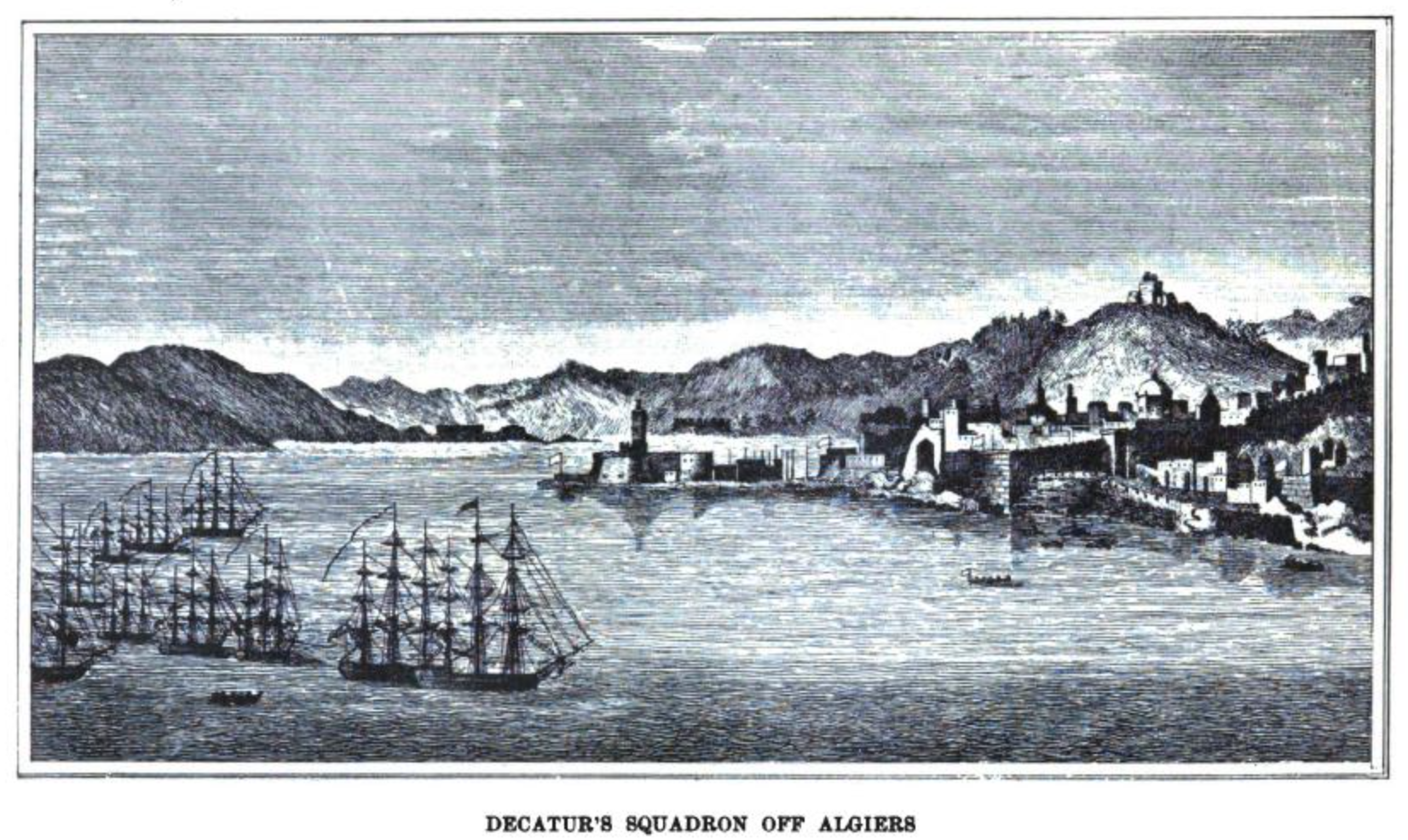“In tragedy, great men are more truly great than in history. We see them only in the crises which unfold them.” -Napoleon Bonaparte
This is the seventh in a series about Commodore Robert F. Stockton, the Founder of Sea Girt.
Robert Field Stockton was born in 1795. He would grow up to be a naval hero, US Senator, and the richest man in New Jersey. His summer home at the Jersey Shore established an estate he called Sea Girt.
The War of 1812 ended with glory for Robert F. Stockton. The 19-year-old newly promoted lieutenant had made his family proud. So much so, that his younger brother Horatio looked to follow in his footsteps. They had their great-uncle Elias Boudinot write William Jones, Secretary of the Navy, for whom Robert had served during the attack on Baltimore.
Horatio was given an appointment as a midshipman and quickly assigned to the hero of the First Barbary War, Captain Stephen Decatur aboard the Guerriere. Both Stockton boys would serve together. Decatur was loved by his sailors. He encouraged them to come to him with any disputes to reduce dueling and he was not fond of flogging his men. In social circles, he was invited to the best Washington parties.
For hundreds of years, the Barbary Pirates had terrorized ships in the Mediterranean Sea from their ports in Algeria, Tripoli, and Tunisia. At this time they were predominantly Muslims under the loose control of the Ottoman Sultan.
Commodore Stephen Decatur
The corsairs, as they were called in the 1800s, raided sea towns, or boarded ships, enslaving their captives. To avoid these raids, governments were asked to pay tributes to the North African leaders.
Once the USA was independent, their ships lost the protection of the British Royal Navy.
In 1804, refusing the demands for tribute, President Thomas Jefferson had the new US Navy blockade Tripoli’s harbor. In the process, the USS Philadelphia ran hard aground on a shoal. Stuck and listing, pirates easily took the ship as a prize, and imprisoned the humiliated captain and his crew.
Three months later, Decatur led a group of 75 disguised marines in a captured boat to seek refuge in the harbor. Using a Sicilian to communicate they pretended their anchor was lost and they were permitted to tie up to the Philadelphia. At night they boarded the Philadelphia, fought with only swords and axes with the corsairs and set the Philadelphia ablaze. Lord Nelson, British Vice Admiral and hero of Robert Stockton called it, "the most bold and daring act of the Age.” A battalion of marines landed in the Lybian desert and marched on the port, bringing the first Barbary War to an end and freeing the Philadelphia crew.
Once the War of 1812 ended, and American ships could traverse the Mediterranean, piracy on American merchants continued unabated. The British were pleased to have smaller nations suffer under piracy, as it strengthened their own trade. They doubted the American Navy could defend its merchants. This arrogance helped the rush to declare war on the Dey of Algiers. After all, while vastly outnumbered, the American Navy had just proven its ships and crew could match the Royal Navy in battle.
In May of 1815, James Madison sent Decatur as flagship commander of a fleet of nine ships to fight the Algerians and other North African powers in the Second Barbary War. The corsair Hamidou ben Ali was the fleet commander for the Dey of Algiers. Raïs Hamidou had captured over 200 vessels in the last few years. Feared and respected, Hamidou had supplied the Dey of Algiers with significant income.
The squadron approached the Meshuda, the flagship of Hamidou. Horatio was assigned top mast duty. Robert had been transferred to the Spitfire, a smaller vessel as first lieutenant. As the USS Constellation forced the Raïs to sail toward the Guerreire the two flagships engaged.
The Spitfire moved to get away from the fire. Robert climbed out on the bowspit for a good look at the action as they passed and he was able to observe the faulty angle of the Guirerre’s guns.He suggested they fire upon the Meshuda and they did. This had the effect of helping place the Guerreire at a better angle for the kill shots. The Meshuda was silenced. The infamous Hamidou was killed and the corsairs surrendered.
Gardner Weld Allen (1856-1944) - Our Navy and the Barbary Corsairs
Decatur continued to capture ships until the Dey agreed to leave American shipping alone without payment of tributes. He then got the same concessions from the ports in Tripoli and Tunisia.
On the way home an accident spoiled the victory. Horatio fell from the upper deck to the lower. He had hurt his leg and at first, it did not seem serious. He returned to duty. Vitamin C which aids in wound healing was often deficient for sailors without access to fresh produce. As they sailed home, infection set in and in New York the well-respected midshipman died at age 18. The only consolation was that he could be buried by his parents at Princeton Prysberterian cemetery. Robert had seen the glory and the cost of war. There is no record found of the grief he must have felt for losing the brother who had followed him to this life.


